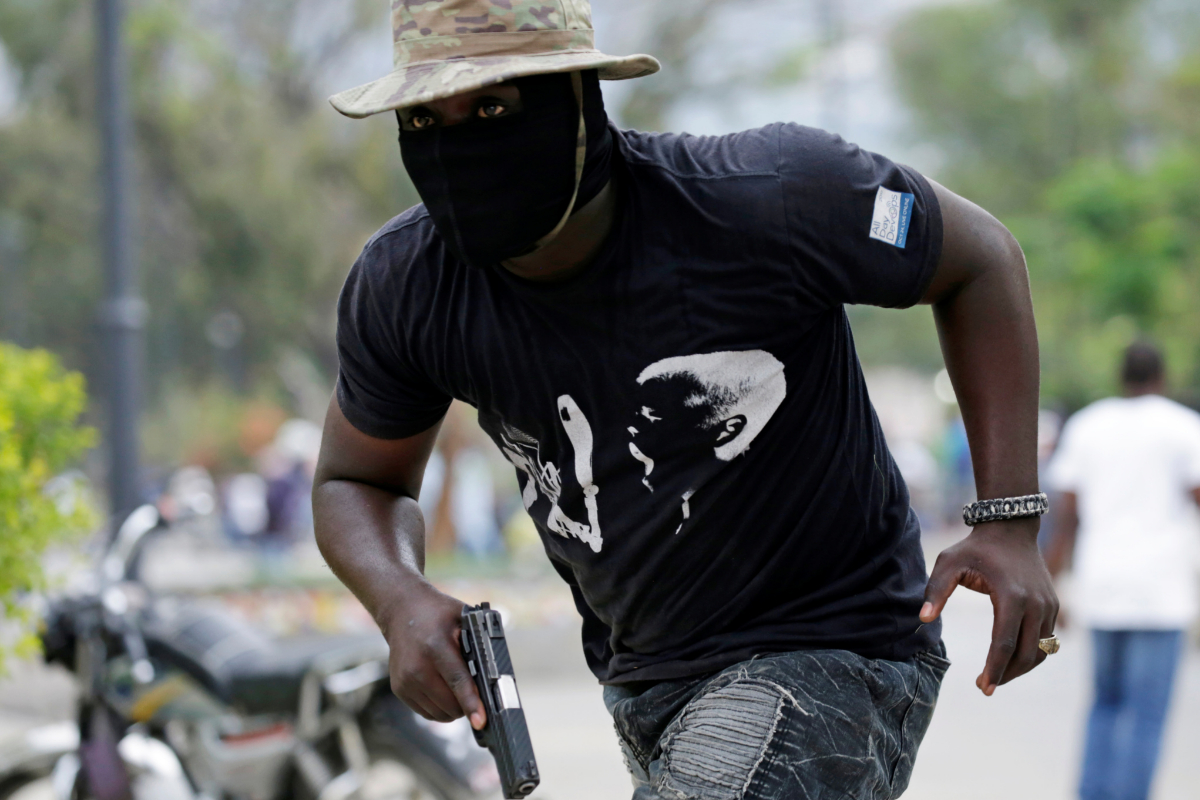- Haiti: A decade later the earthquake is not over
A group of police officers unhappy about their working conditions turned the center of the capital of Haiti into a war zone on Sunday while attempting to storm the army headquarters, resulting in at least two dead and nine wounded.
The assault took place in the "dimanche gras", the first day of the Haitian Carnival and in the middle of Champ de Mars, the large esplanade located in front of the Presidential Palace where the parades were to be held, which were canceled after the shootings.
A group of plainclothes and hooded police officers shot at the Army headquarters and tried to set fire to the building, located in the same area, according to the High Command of the Armed Forces in a statement.
In the shooting a soldier died , while another soldier, whose rank was not specified, was injured and is hospitalized in stable condition, according to the source.
The High Command of the Armed Forces said in the statement that the military maintained "a defensive stance to avoid a bloodbath," while calling on the police to "restore calm."
Later, the shooting became widespread in the Champ de Mars square, facing the military on one side and the uniformed and civilian police on the other, before the eyes of journalists who had come to cover the Carnival.
A police officer also died in the clashes and at least eight people were injured, including three civilians and five agents, a spokesman for the Bernard Mevs hospital in Port-au-Prince told Efe.
The incidents have spread to the headquarters of Radio Television Caraibes, where armed men identified as "police protesters" have burned several vehicles of the station, as reported by the journalists' union.
Late at night, loud shootings were still heard in various parts of Port-au-Prince.
THE CANCELLATED CARNIVAL
After these events, the Haitian Government announced the cancellation of the Carnival celebrations, a party that tried to organize by all means to give a sense of normalcy in the country, after the crisis of recent months.
"In order to avoid a scheduled bloodbath, the Government informs the population and the carnivals in particular that it has decided to cancel the Carnival in Port-au-Prince," the Ministry of Culture and Communication announced in an official note.
The Government described the events lived in the center of Port-au-Prince as a "war situation", with shootings throughout the day and blocked streets.
POLICE CLAIMS
The police have demonstrated several times this year to ask for salary improvements, the right to create a union and other labor demands.
To pressure the Government, last week they tried to boycott the Carnival by setting fire to the stages that the Executive had set up in Champ de Mars.
On Saturday, Haitian President Jovenel Moise announced extraordinary benefits for agents, including the granting of mortgage loans at very low rates; However, the police did not like the offer.
In its statement condemning the attacks, the Government wonders why the police adopt "extremist behavior " instead of sitting down to negotiate with the Executive, who has "outstretched hands."
"Why reject dialogue and the outstretched hand to solve the difficult problems facing the country, prefer the path of anarchy and offer the population more pain and tears that such a situation will not stop causing?", The statement said.
AN ARMY LOYAL TO THE PRESIDENT
The Haitian Army has a small contingent of about 500 soldiers, and was created in 2017 by order of the current president, whose figure the military has shown loyalty.
Haiti spent two decades without the Armed Forces because in 1995 the then head of state Jean-Bertrand Aristide dissolved them, in response to the military coup d'etat four years earlier.
The Haitian Police has a contingent of about 15,000 troops, who have received training from the military and police deployed in the country between 2004 and 2019 within the framework of the UN Mission.
A HONDA AND POLYPHACETIC CRISIS
Haiti has been experiencing strong socio-political instability since July 2018, due to the weakness of the economy, the accusations of corruption that dot President Moise and the growing insecurity.
In addition, the country has been without a prime minister for almost a year and, since last January, without Parliament, at the end of the legislature without elections to renew the Chamber of Deputies and the Senate due to instability.
Between September and November there were constant popular demonstrations that led to the paralysis of economic, institutional and academic activities for about two months.
The last parliamentary elections were scheduled for last October, but were postponed because that wave of anti-government protests.
In the midst of the crisis, President Jovenel Moise has sought to promote talks with the opposition in order to negotiate the formation of a Government of national unity.
According to the criteria of The Trust Project
Know more- international
- America
SpainThe Government stages unity in its day of coexistence to reduce the differences between its partners
Middle EastContinue violence in Palestinian territories in rejection of Trump's plan
Northern Ireland Republican presidents planned to blow up a ferry in Northern Ireland on Brexit Day

